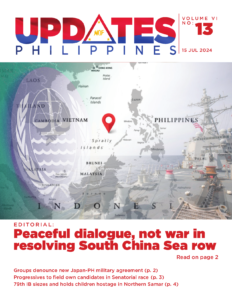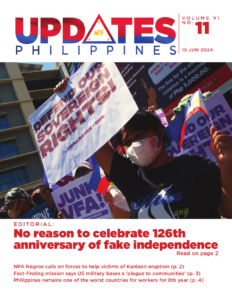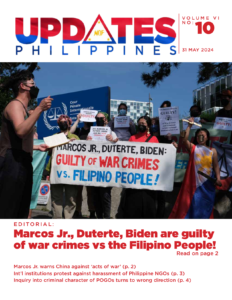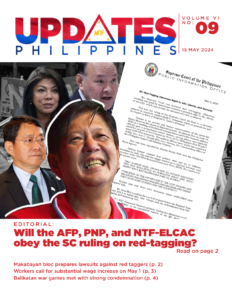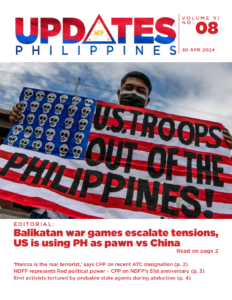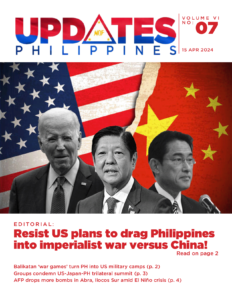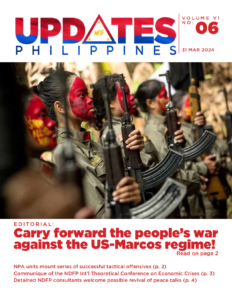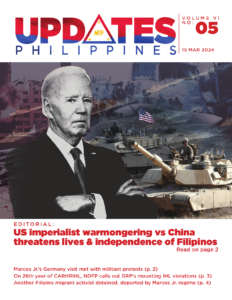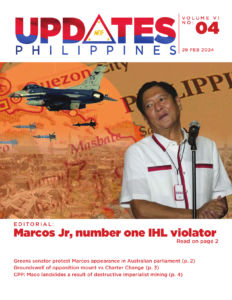Editorial Peace talks must focus on addressing the real roots of civil war
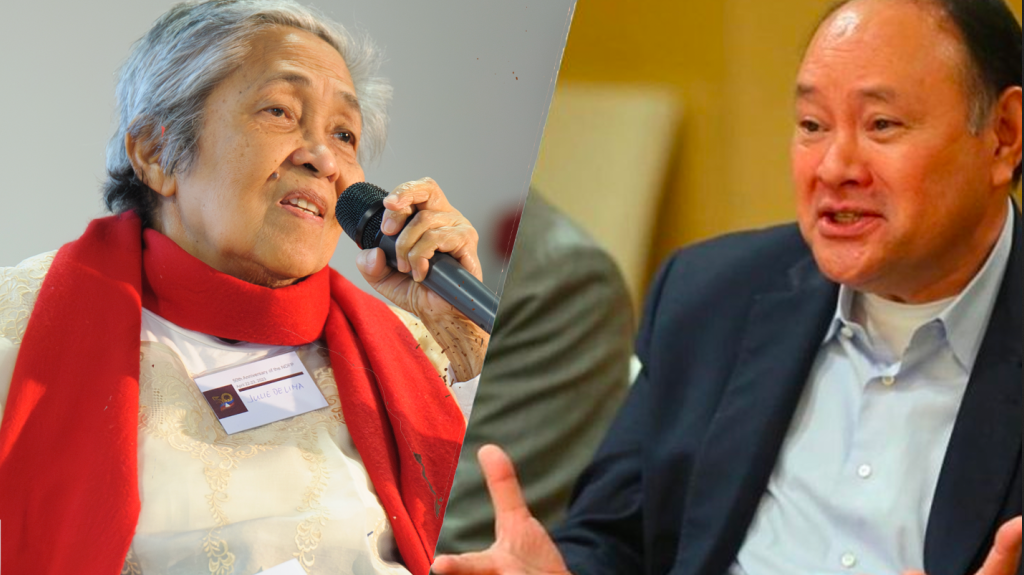
Gibo Teodoro’s head-scratching insinuation that the National Democratic Front of the Philippines (NDFP) was willing to surrender is simply untrue. To say that this is the basis for the Government of the Republic of the Philippines (GRP) agreeing to explore the resumption of peace negotiations is also incorrect.
First of all, it was the GRP that first approached the NDFP and not the other way around. Secondly, the fact that the GRP seeks for the resumption of peace negotiations with the NDFP is a clear indication, albeit openly denied by the GRP, of the strength of the revolutionary movement. It also belies the GRP’s repeated claims that the New People’s Army is a “spent force.” If the GRP’s claims were true, what need was there for peace talks to begin with? Lastly, the Oslo Joint Statement also comes at a time of intensifying economic and political crises which fuel the flames of civil war.
Let there be no mistake, that the resumption of the peace negotiations is also an implicit recognition of the utter failure of the US-Marcos regime, and all regimes that preceded it, to crush the revolutionary resistance of the movement of the Filipino people for national liberation and democracy.
It is also a failure of thinking on the part of GRP stooges such as House Speaker Ferdinand Martin Romualdez to demand the revolutionary movement to “abandon the path of violence” and essentially give up arms.
We reiterate that the point of entering peace negotiations is not to arrive at capitulation, but to discuss mutually acceptable and principled ways of achieving just and lasting peace.
The GRP operates under the wrong assumption that the root of armed conflict is the CPP-NPA-NDF. This however is an utterly false claim meant to obscure the GRP’s accountability for persisting landlessness of the peasant class, widespread poverty, depressed wages of workers and the lack of local industrial development – which are the real roots of civil war. These are the same substantive agenda items the NDFP seeks to discuss on the negotiating table.
As such, we ask the GRP to focus their efforts instead on the “meat” of the negotiations. Before proceeding to any conversation about the cessation of hostilities, we urge the GRP to go back to the negotiating table and discuss first the remaining substantive agenda items under the Hague Joint Declaration. This means discussing the draft Comprehensive Agreement on Social and Economic Reforms (CASER) which primarily addresses the root causes of civil war.

